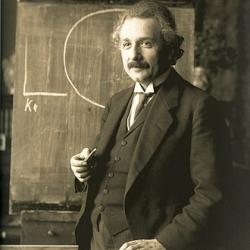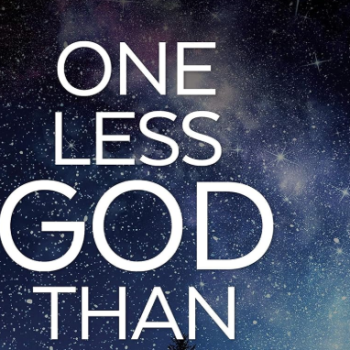". . . We see at this hour Christianity is developing a new creativity . . ." he says, citing "a dynamic of new movements," "new Catholic awakenings," "new life," "new enthusiasm," "new initiatives," and "new possibilities." "I am quite optimistic that Christianity is on the verge of a new dynamic."
Speaking of our culture's Godlessness, the pope calls it a "new religion," and says a "new intolerance that is spreading." He adds that this new paganism should be countered with a new apologetics, a "new evangelization."
We are "in an age in which a new evangelization is needed; in which the one gospel has to be proclaimed both in its great, enduring rationality and in its power that transcends rationality, so that it can reenter our thinking and understanding in a new way."
He calls on bishops to reflect on ways to give catechesis a "new heart and a new face." Repeatedly, the Holy Father stresses the need to find "new ways" to spread the Word.
"That is why, I think, as a new emphasis we have to give priority to the question about God," says Benedict. "This makes it all the more important for Catholicism to present its faith in a new and vital way and to reproclaim it as a force for unity, a force of solidarity and of eternity's openness to time."
The pope also prescribes a method. At the heart of such efforts, the Holy Father points to Christ in the Eucharist, "the place where man can receive the kind of formation from which new things come into being."
The pope's clarion call is this: "We must summon fresh energy for tackling the problem of how to announce the gospel anew in such a way that this world can receive it, and we must muster all of our energies to do this."
For those willing to look past the trees, in Light of the World, Pope Benedict XVI gives us both the ailment and the remedy. Many tend to think of the Church as old, ancient even. How refreshing it is to be reminded that Christ makes all things new and that the Church is ever-new. That's a Church I can live with.
Tim Drake serves as senior writer with the National Catholic Register.
Rev. James Martin, S.J.
A Welcome Broadening of the Conversation
Once again, the Catholic Church has not changed its teaching on the use of condoms as a means of birth control. Nor has the church "officially" changed its teaching on the use of condoms; an interview is not the same as an encyclical or a document from a Vatican congregation. But the previously out-of-bounds discussion about whether condoms can be used as a means to prevent the spread of disease is now in-bounds. That is change, by any definition.
And that change is a good one, for if it moves the conversation ahead, it may mean a further lessening of the spread of HIV/AIDS and the prevention of death. It is a pastoral approach that has listened to the voices of many in the field -- Catholic lay healthcare workers, moral theologians, bishops, priests, sisters, and brothers -- who have reflected on their experiences ministering to those living with AIDS, especially in the developing world. As such, it may be seen as a new kind of pro-life initiative on the part of the Holy Father.
Change for the better is to be welcomed, not feared. (A good resource on this John Noonan's A Church that Can and Cannot Change.) As Blessed John Henry Newman said, "To grow is to change. To be perfect is to have changed often." That would be the same John Henry Newman beatified by Pope Benedict XVI.
The Rev. James Martin, S.J., is a Jesuit priest, author and culture editor of America, the national Catholic magazine. These remarks are excerpted with permission, from this larger piece.




